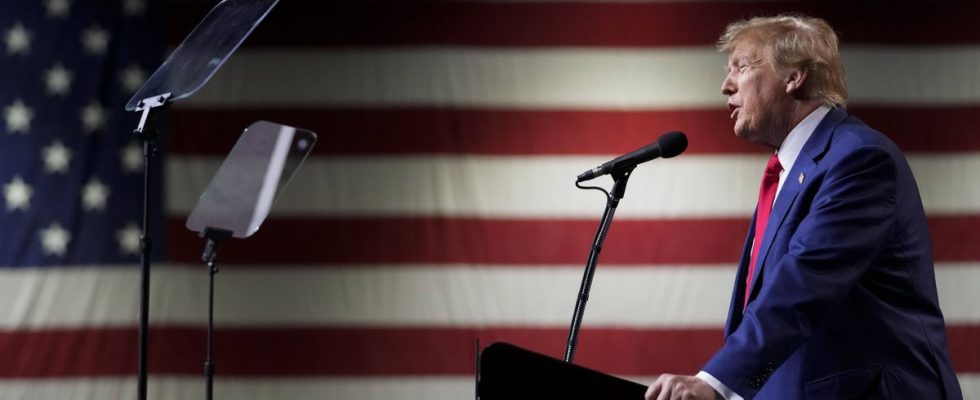This will be one of the most important legal decisions in the history of American democracy. On Friday, the Supreme Court of the United States agreed to take up the question of Donald Trump’s ineligibility, while Colorado estimated that the former American president was “not fit” to be registered on the lists of the Republican primary for having participated in “an insurrection” during of the assault on the Capitol.
The court set the hearing for February 8 to hear the arguments of both camps. A race against time is underway: the Republican primary in Colorado must take place on March 5. And the stakes are enormous: The Supreme Court’s decision will dictate not only whether Colorado is in the right, but whether other states can, as Maine did, follow suit and declare Donald Trump ineligible under the 14th amendment of the Constitution. A point on which there is no consensus among constitutional law experts.
“I hope to receive fair treatment,” Donald Trump reacted Friday evening in Iowa.
Favorable ground for Donald Trump
In Colorado, the body that declared Donald Trump ineligible by a 4-3 vote, was made up of 7 judges appointed by Democratic governors. On the United States Supreme Court, on the other hand, conservatives have a large 6-3 majority, with three justices appointed by Donald Trump (Gorsuch, Kavanaugh and Coney Barrett).
The 14th Amendment to the United States Constitution was adopted in 1868 after the Civil War. It stipulates that a political, military or judicial official can no longer hold such functions if he “has taken part in an insurrection or rebellion”.
The Supreme Court will mainly have to decide three points:
- Is the President of the United States, who is not explicitly cited in the text, really an “officer of the United States”: unless we are splitting hairs, conservative anti-Trump lawyer George Conway believes that this is indeed the case, with the position designated as “the office of the president of the United States”.
- Did Donald Trump “participate in an insurrection” with his speech preceding the assault on the Capitol in which he called on his supporters to “fight like hell” and “march” towards the Capitol while then talking about “ peaceful march to make your voice heard.”
- Is the 14th Amendment “self executing”: the question is whether it can be directly invoked by a state, or whether it requires a law or a vote of Congress to declare a person ineligible.
Uncertainty
At this stage, it is difficult to predict which way the Supreme Court will lean. The Colorado judges were careful to write their decision by espousing an “originalist” vision of the Constitution dear to conservatives, according to which the text must be interpreted in the context of the vision of the founding fathers in the 19th century.
The head of the body, John Roberts, has sometimes voted with the progressives, and in 2012, Neil Gorsuch (before he was on the Supreme Court), ruled that a state could declare a candidate ineligible in certain circumstances. Enough to potentially pave the way for a narrow 5-4 majority against Donald Trump.
“It is likely, in my eyes, that the Court will overturn the Colorado decision,” however, he said. 20 minutes lawyer Brad Moss before the holidays. “Either interpreting that Section 3 of the 14th Amendment does not concern the presidency, or, as Michigan did, concluding that it is a political, not a judicial, question. »
For the Supreme Court, this is probably only the beginning. The nine judges could also be asked to decide the question of Donald Trump’s potential judicial immunity between now and his first federal trial, scheduled to start in early March.

